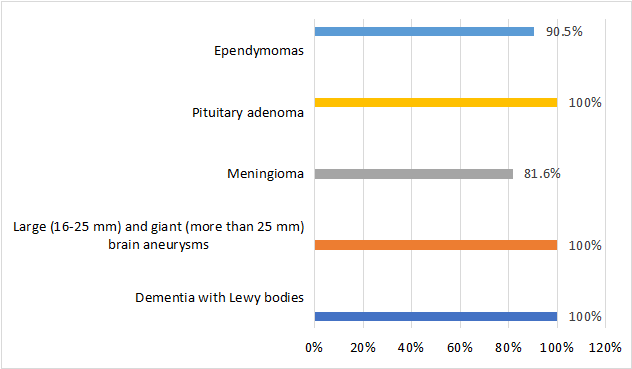Automated Screening of Brain Disorders: A Machine Learning Model for MRI Classification
DOI:
https://doi.org/10.17762/ijcnis.v15i4.6407Keywords:
Machine Learning, Artificial Intelligence, Diseases of the Nervous System, Neurosurgery, DiagnosticsAbstract
This study investigated the potential of using convolutional neural networks (CNNs) for diagnosing brain diseases based on MRI scans. The aim was to compare the accuracy of CNNs to clinician diagnoses and explore their limitations. In the course of the research, the following theoretical methods were used (literature analysis, generalisation); diagnostic (anamnestic survey, the use of MRI); empirical (study of the experience of medical organisations, regulatory documentation); methods of mathematical statistics and deep machine learning. A high-performing CNN model was developed, exhibiting excellent accuracy for specific diseases such as dementia with Lewy bodies. However, challenges were identified with distinguishing meningiomas and ependymomas, suggesting the need for further training data and refinement. These results, together with the conclusions of the works of other authors, continue the path to the implementation of quality education and artificial intelligence in clinical settings. The possibilities of using AI in neurosurgery and neurology are expanding more and more. The main areas of application are diagnostics, models of outcomes and treatment. Further research should focus on improving AI techniques, increasing databases and involving more patients for each of the diseases, including a larger control group.
Downloads
Published
How to Cite
Issue
Section
License
Copyright (c) 2024 International Journal of Communication Networks and Information Security (IJCNIS)

This work is licensed under a Creative Commons Attribution-NonCommercial-ShareAlike 4.0 International License.




